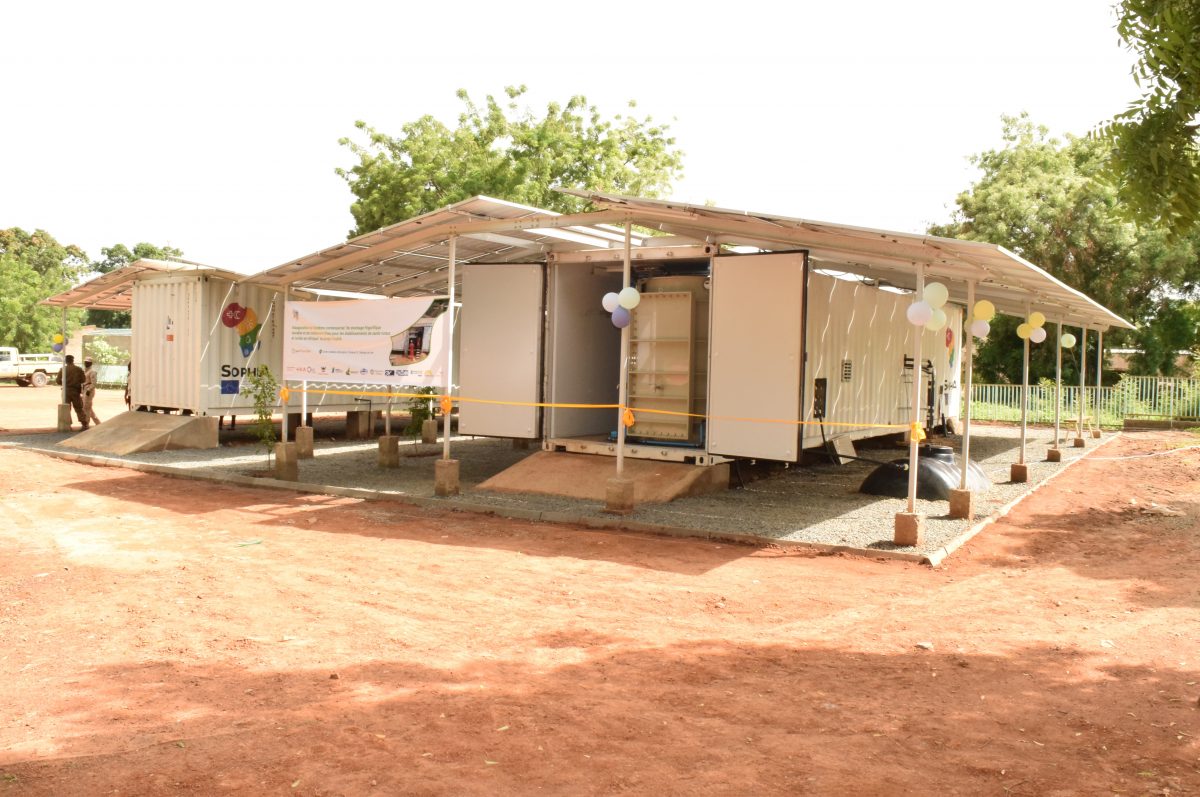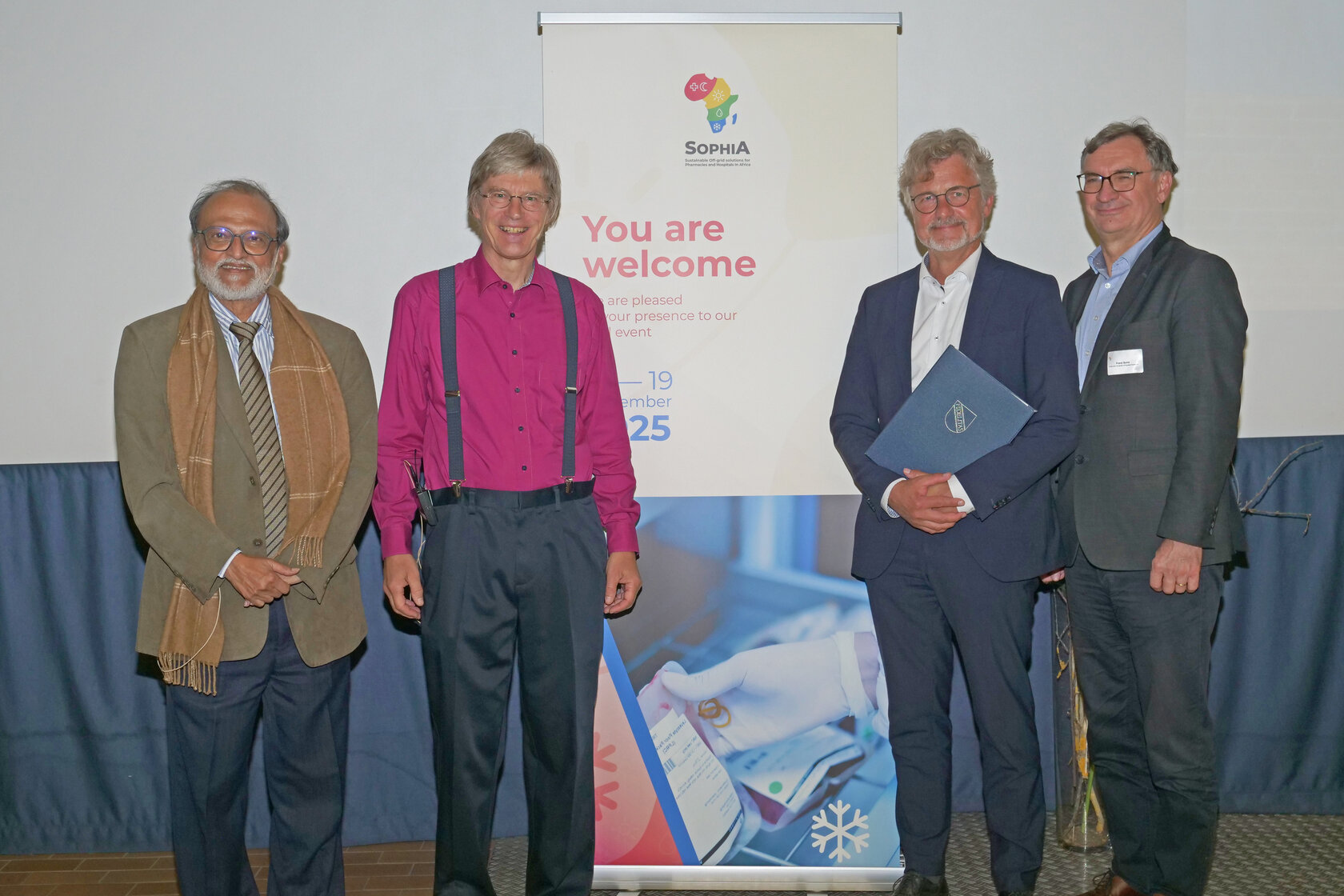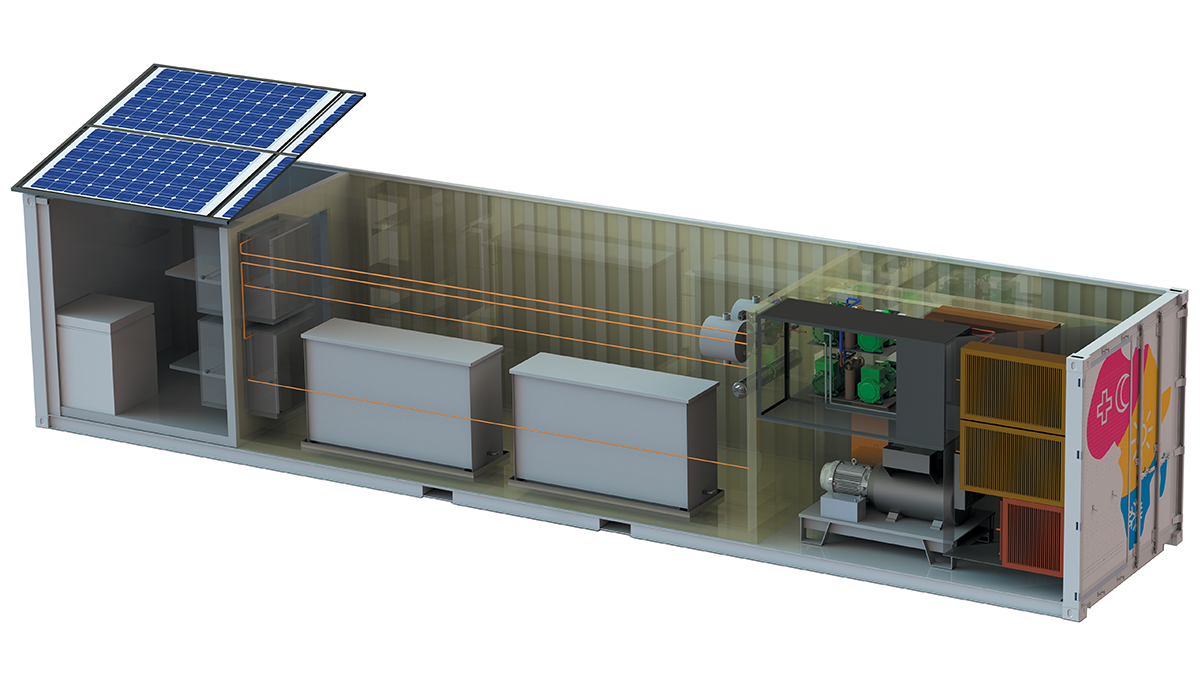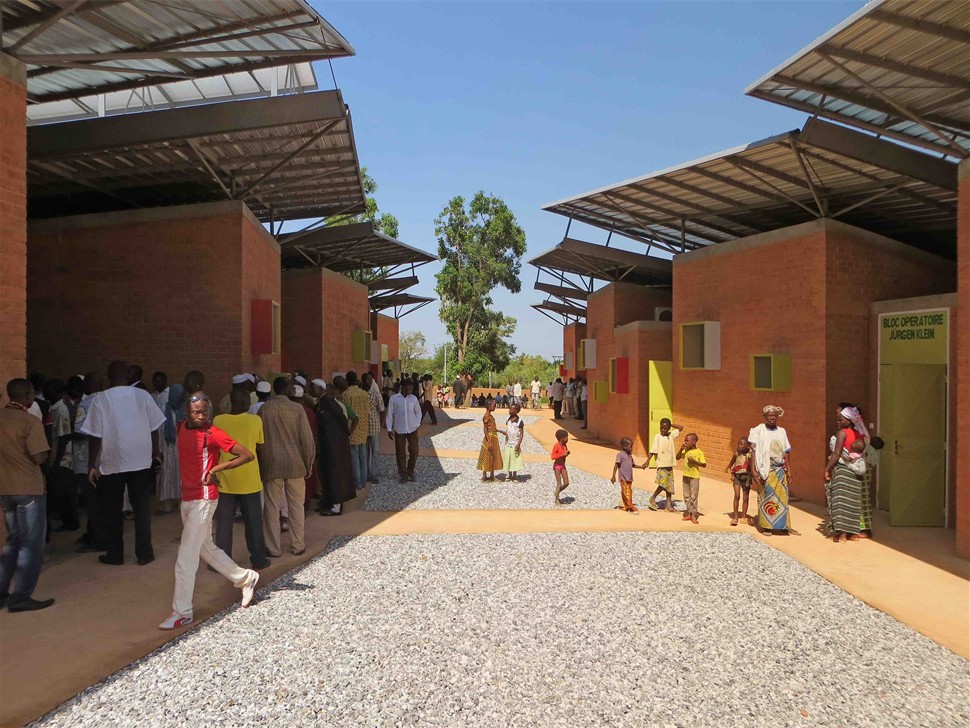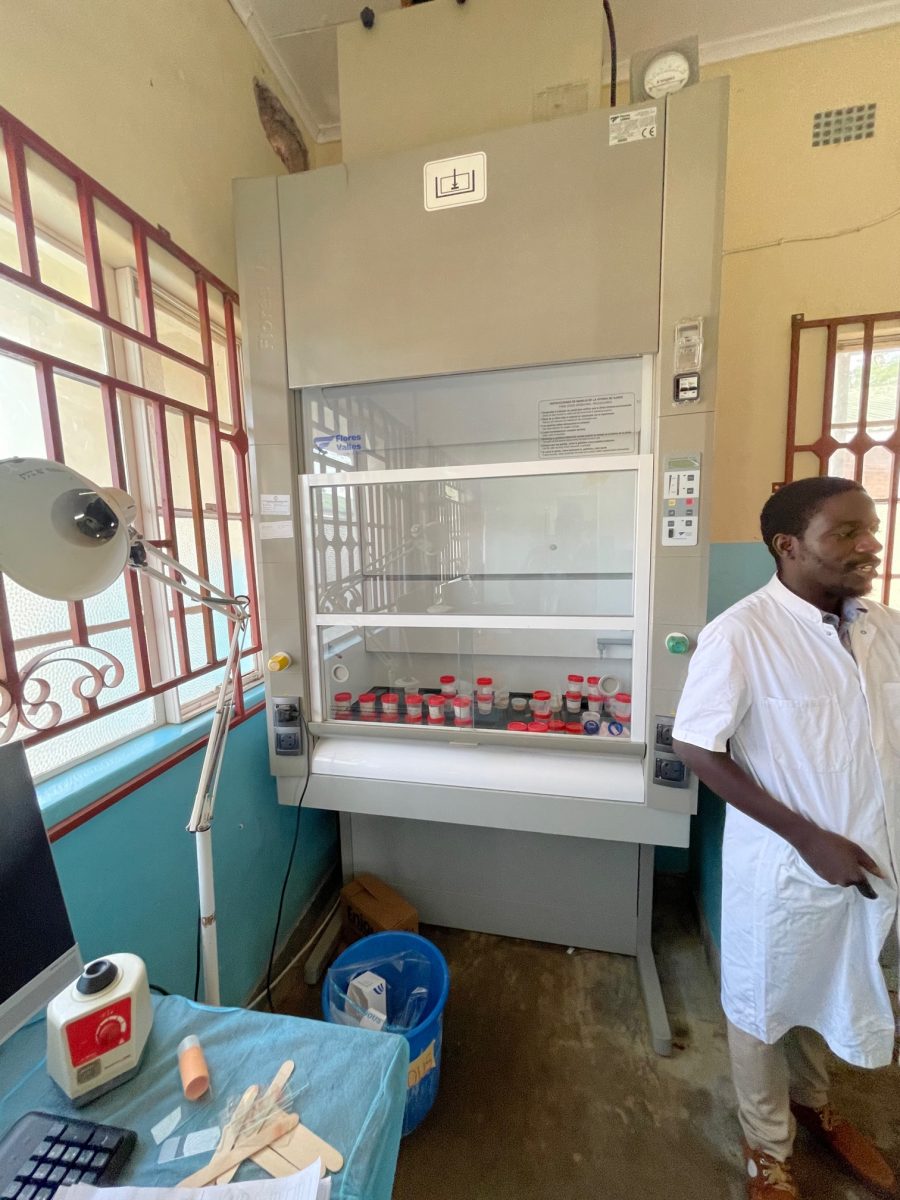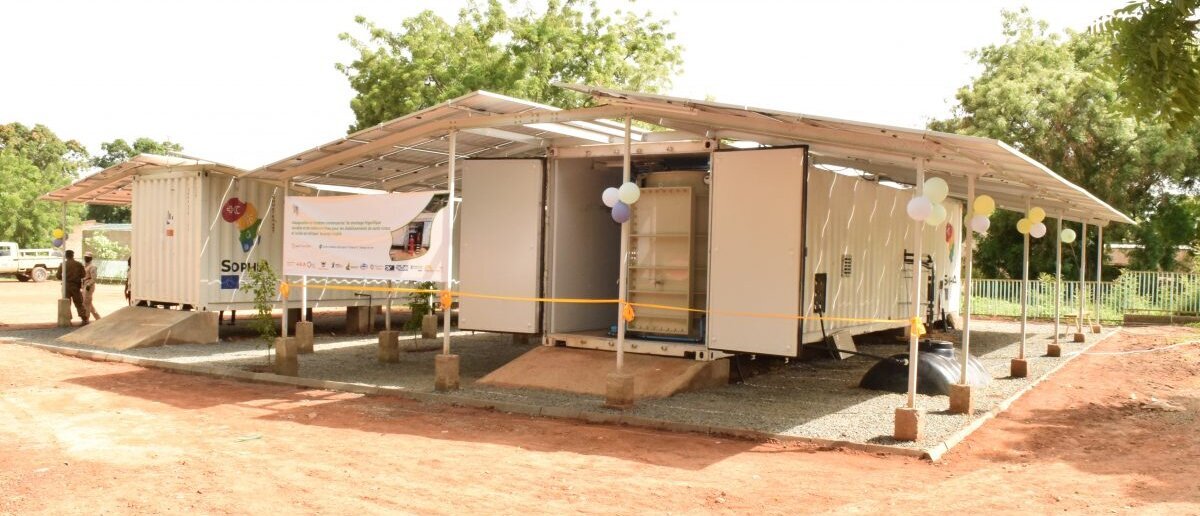September 18, 2025
On September 17, 2025, representatives of the 13 project partners met at Karlsruhe University of Applied Sciences (HKA) for the official conclusion of the international research project "SophiA". On this occasion, they were welcomed by Dr. Frank Mentrup, Mayor of the City of Karlsruhe, and Prof. Franz Quint, Vice-Rector for Research, Cooperation and Transfer at HKA. In addition to the lead partner HKA, the Steinbeis-Europa-Zentrum, the non-governmental organization "Operate in Africa" and the companies MARTIN Systems GmbH, Simply Solar GbR and RAACH Solar are involved from Germany. The French International Institute of Refrigeration, the OST - University of Applied Sciences of Eastern Switzerland, Makerere University in Uganda, the Institut International d'Ingénierie de l'Eau et de l'Environnement in Burkina Faso, the Ministry of Public Health in Cameroon and the South African companies Everflo and Kovco also took part.
The project was also supported by other national ministries, health authorities and hospitals as well as renowned non-governmental organizations and companies.
SophiA is one of four projects selected from 150 submissions in the "Accelerating the Green Transition and Energy Access Partnership with Africa" call (TOPIC ID: LC-GD-2-3-2020), which was funded by the EU for four years with 8 million euros.
"SophiA stands for 'Sustainable off-gridsolutions for pharmaciesand hospitals in Africa', i.e. sustainable off-grid solutions for pharmacies and hospitals in Africa," says project manager Prof. Dr.-Ing. habil. Michael Kauffeld, who heads the Institute of Refrigeration, Air Conditioning and Environmental Technology at the HKA and teaches at the Faculty of Mechanical Engineering and Mechatronics. "The aim of our project was to develop sustainable and energy-autonomous cooling and water treatment container systems for African hospitals that allow them to keep water, medicines, blood plasma, serums and vaccines at stable temperatures ranging from +6 °C to -70 °C and to test them in real-life applications in four different African climate zones."
Most people in Africa still live in rural and remote areas, often with poor infrastructure. As a result, they also suffer from poor access to healthcare, schools and other services, which also leads to poverty and disease. Poor and unreliable electricity supply and lack of access to safe and clean drinking water are common and half of sub-Saharan Africa's population has no access to electricity.
In sub-Saharan Africa, around a quarter of all health facilities have no access to electricity and only just more have a reliable power supply. Furthermore, in many regions up to half of these facilities have no access to safe drinking water. Local medical care centers often have to cope with contaminated water, no refrigeration (of medicines), no air conditioning and inadequate sanitary facilities.
Refrigeration is an often neglected and underestimated area. For example, hospitals typically require chilled water at +6 °C for operating theaters and intensive care units, +5 °C for cooling medicines, -30 °C for blood plasma and up to -70 °C for some vaccines. Many medicines, ointments and erythrocyte concentrates (red blood cell preserves for blood transfusion) must be cooled to +5 °C and will otherwise spoil quickly.
In addition to the provision of safe and clean drinking water, access to energy is a crucial prerequisite for the use of modern medical technologies and therefore also a key factor for basic healthcare services. The African continent has enormous potential for renewable energies, but photovoltaics (PV), for example, has only been used to a limited extent to date. Furthermore, PV-powered systems can contribute significantly to reducing CO2 emissions. Stand-alone diesel-powered generators produce more than 1 kg CO2/kWh, while PV solar systems release less than 250 g of CO2 on average.
Through SophiA, a sustainable, off-grid supply for rural and remote healthcare facilities in Africa can now be developed and provided locally.
For this purpose, PV panels, solar thermal modules, ultrafiltration in combination with UV lamps and capacitive de-ionization as well as natural refrigerants with low global warming potential (low GWP) are used in a three-stage cascade refrigeration system with highly efficient thermal energy storage. In addition, PV MedPorts were able to develop a simple and 100% solar-powered solution and set it up and test it in small remote health stations in four different African climate zones in Burkina Faso, Cameroon, Uganda and Malawi.
Based on the results of these field test installations, a modular container version is now available at the end of the project. To this end, guidelines have been drawn up to enable local companies to build similar systems on site. The SophiA team also developed a training program. Its participants become trainers for SophiA, cooling and water technologies on site and thus ensure continued operation.
"Through SophiA, we were able to set up and successfully test pilot systems in four countries," said Dr. Kauffeld at today's project conclusion. "We have also trained local specialists so that the plants can continue to be operated and others can be built along the same lines at a manageable cost. SophiA can thus help to ensure that more and more people, particularly in rural regions, have access to electricity, clean drinking water and refrigeration for food and medicines thanks to solar energy - an incredible improvement in quality of life! SophiA can thus contribute to sustainable development and growth in Africa."
"The development of appropriate capacities is a key success factor for the sustainable implementation of innovative technologies. Karlsruhe University of Applied Sciences was therefore happy to support the SophiA project," says Prof. Dr.-Ing. Franz Quint, Vice President for Research, Cooperation and Transfer at HKA, "in order to disseminate specialist knowledge and build up practical expertise in international partner regions."
"SophiA is an example of how innovation and international cooperation from Karlsruhe can create sustainable, real improvements for healthcare," says Dr. Frank Mentrup, Lord Mayor of the City of Karlsruhe. "The project is a beacon of commitment and global responsibility."
